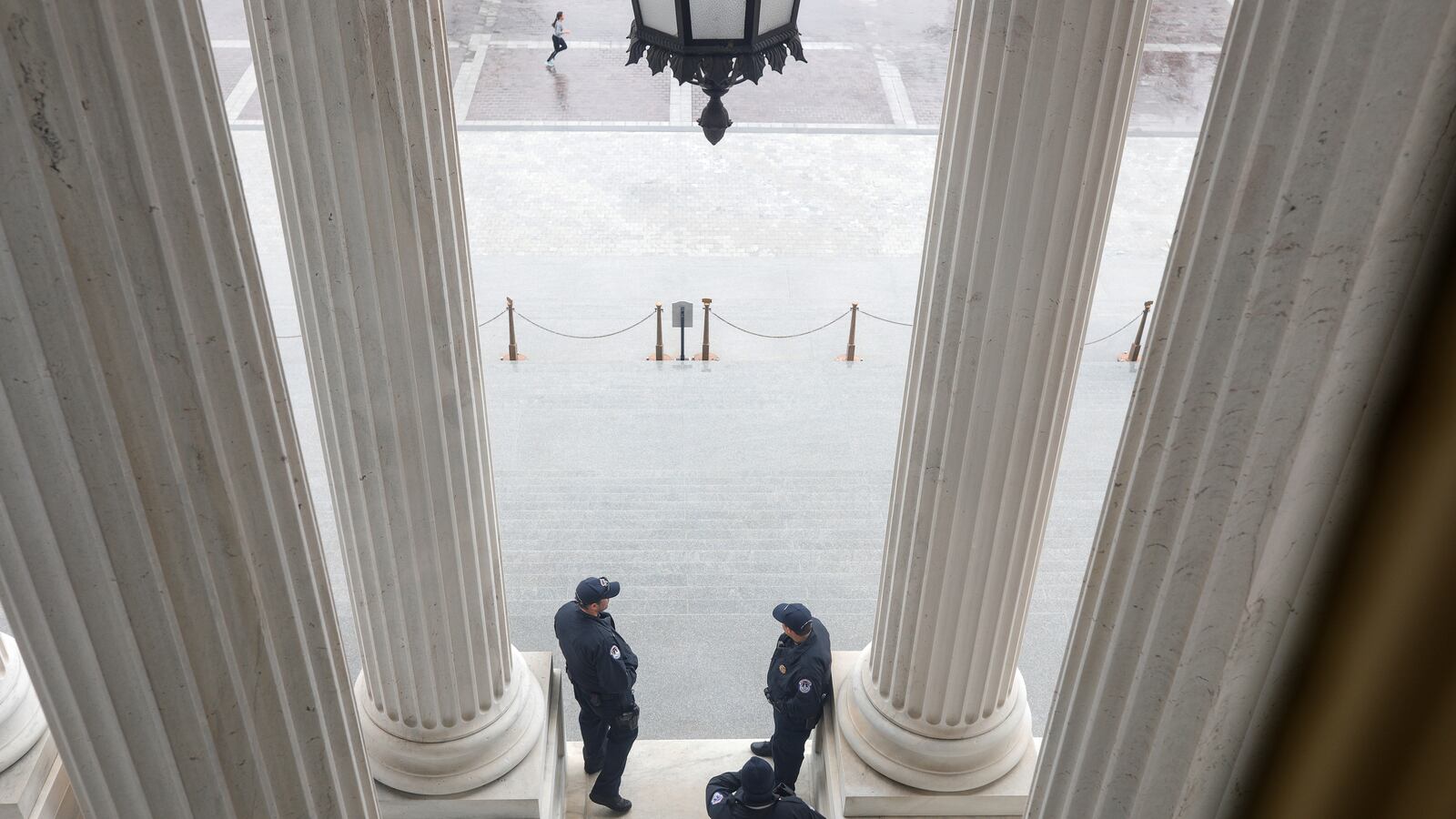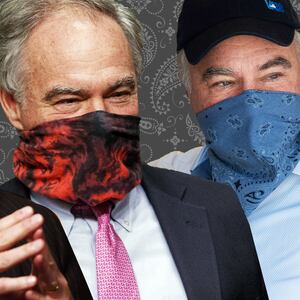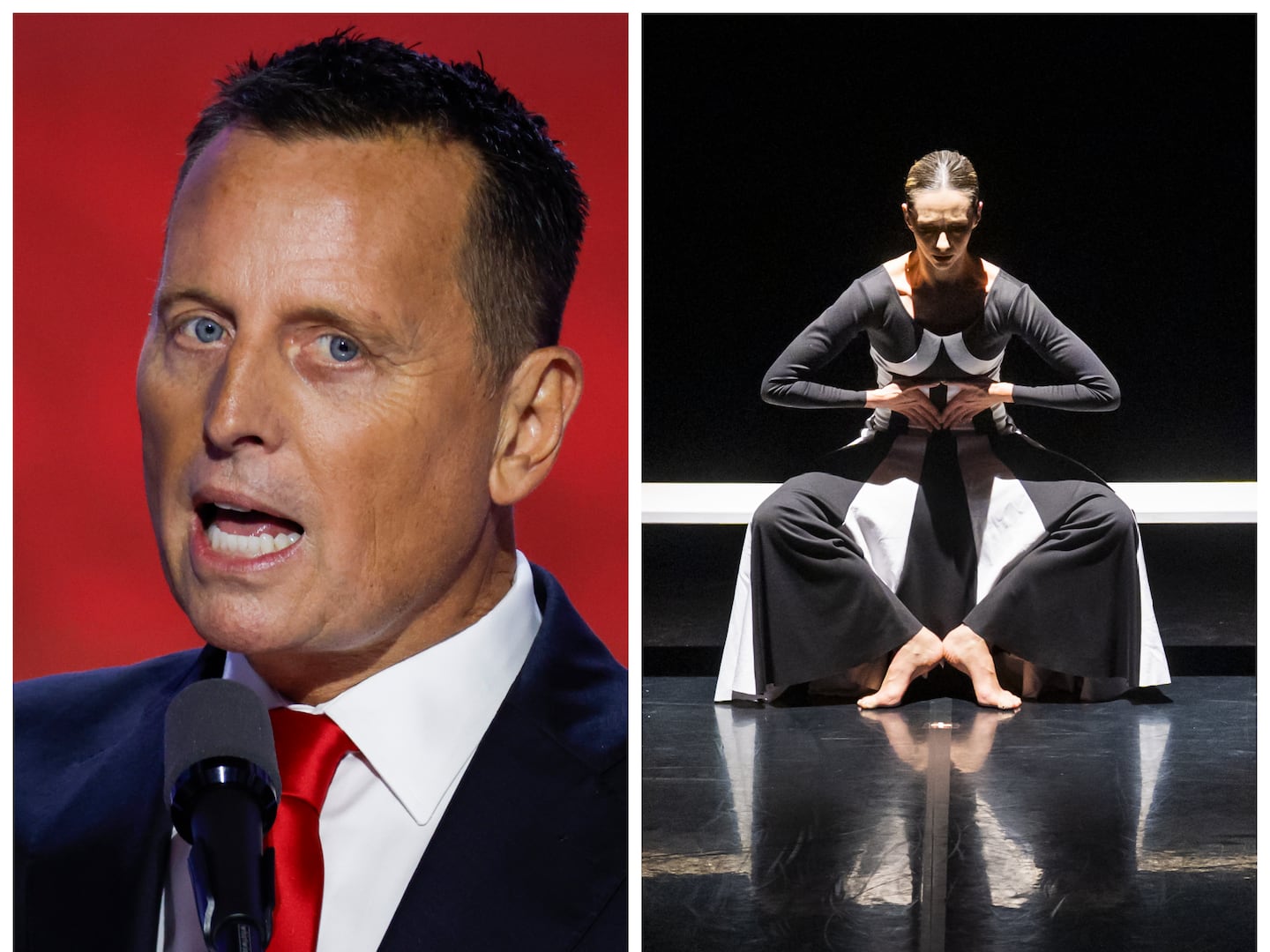As the U.S. Senate charged ahead this month with normal legislative business in the midst of the COVID-19 pandemic, Democratic Senate offices lodged complaints that U.S. Capitol Police officers were not reliably wearing face masks while on the job on Capitol Hill, four sources tell The Daily Beast.
Fear that police officers were being too cavalier about public safety measures was one of many concerns that these staffers had about reconvening the chamber in the midst of an outbreak that was disproportionately killing people in the same age cohort as many of their bosses. But the concern was pronounced enough that two weeks ago, Senate chiefs of staff convened a call in which they discussed, among other things, what they could do to compel members of the police force to follow the advice of the Centers for Disease Control and Prevention, which had recommended wearing masks to help stop the spread of the virus.
Their complaints made their way to the Senate Rules Committee, the panel with jurisdiction over Senate operation and administration, according to a source familiar with those discussions. The committee then conveyed those complaints to the U.S. Capitol Police Department.
The following week, on May 7, USCP issued a formal rule that officers “are required to wear face coverings when social distancing is not possible or practicable to maintain in the performance of their duties.” Since then, aides say they have noticed that more officers are wearing masks as they patrol and guard Capitol Hill, though not all of the 2,000 officers charged with maintaining the safety of lawmakers and staff in the sprawling complex.
A spokesperson for the department did not respond to a request for comment.
The fact that congressional staff felt the need to push for the Capitol police force to abide by mask-wearing—one of the basic guidelines for safe performance of essential duties—is further evidence of the intense discomfort that a good portion of the Senate’s personnel has felt in returning to Capitol Hill amid the coronavirus outbreak.
Aides to senators say they’ve taken steps to keep their offices as sparsely populated as possible, while ensuring that those who do have to go in are observing recommended protocols. But the environment remains a health risk. A peak in cases in D.C. is expected in late May and lawmakers themselves have proven vulnerable to the virus still. In a marquee hearing on Tuesday featuring Dr. Anthony Fauci and other COVID-19 task force members, Sen. Lamar Alexander (R-TN), had to chair it from his home in Tennessee, where he was self-quarantining after exposure to the virus.
The decision to bring senators back in these conditions was made by Senate Majority Leader Mitch McConnell (R-KY), who has called legislating an essential function like any other and insisted that the institution could function safely.
“We’re all going to be here, and we believe we can man the Senate in a way that’s consistent with good practices, the proper spacing, masks where appropriate,” McConnell said on April 29.
McConnell and key Senate officials were warned by the Capitol’s attending physician, however, that Washington, D.C., region had not yet hit the benchmarks that would indicate a safe return to work for 100 senators—two-thirds of them over the age of 60—as well as for their staff and for Capitol support staff like custodians, cafeteria workers, and police officers. That doctor, Attending Physician Dr. Brian Monahan, also said that Capitol officials lacked the capability to test senators proactively for the coronavirus, and only had the capability to test those who were already sick.
Since returning to Washington on May 4, Senate leadership has attempted to implement socially-distanced versions of normal congressional functions, like press conferences where attendees are spaced far apart and committee hearings in which some senators sit apart from each other and others beam into the proceedings via video conference.
Some senators have ignored the mask recommendations themselves. Sen. Rand Paul (R-KY), who tested positive for COVID-19 but was asymptomatic, has eschewed face coverings, arguing that he is immune from the virus. It is unclear if those who contract COVID-19 are immune afterward or are incapable of transmitting it.








